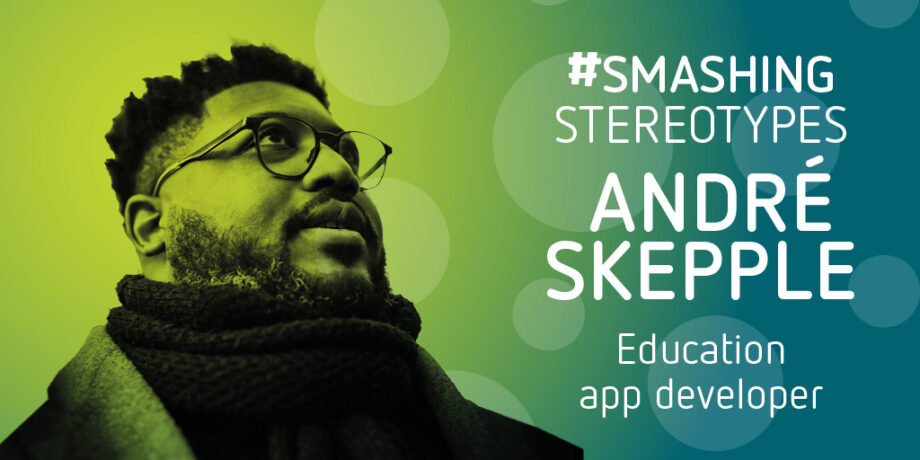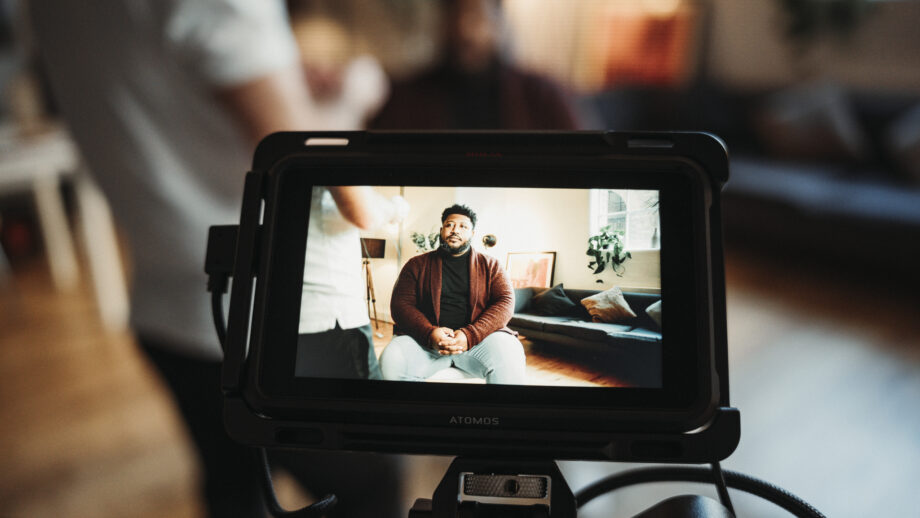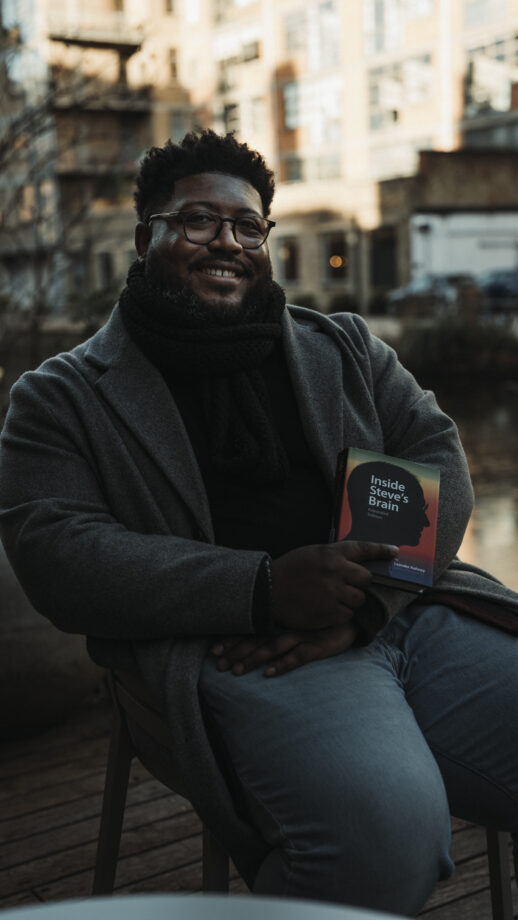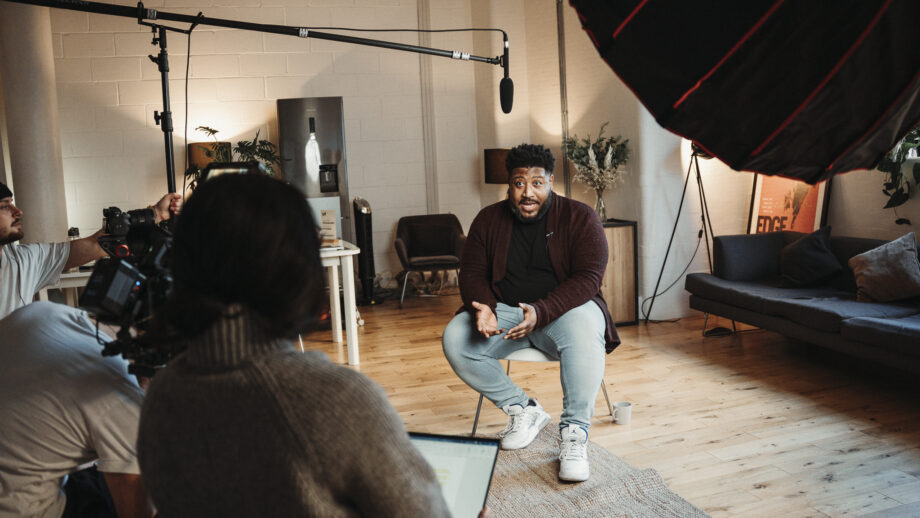
André Skepple
Education app developer
Founder and CEO, FullSpektrum
Bridging gaps in education with AI technology
André Skepple is the CEO and founder of FullSpektrum, an app which tackles learning difficulties and diverse learning styles in education, inspired by his own experiences and challenges. Early role models and his own resilience led to a successful career as a scientist developing diagnostic tools for drugs and bacteria.
With FullSpektrum, he transitions these tools to the world of education to diagnose learning difficulties in young people. Through his work, he seeks to empower and support students in their learning journeys.
Nurturing a passion for technology from a young age
I was always very interested in creating things as a child, whether it was putting together a model car or building toys. I had a very engineering-oriented mentality, and everything I encountered, be it a toy or a tool, intrigued me. So, from my childhood, I had a natural interest in technology.
At the time, I was in a supplementary school for African children. Supplementary schools are community-led organisations which usually operate at weekends, providing additional sessions on home language studies, cultural activities and religious studies. My one offered core subject support and taught elements of Black African history. It not only helped with my studies in primary school but also unmasked my learning difficulties.
Unmasking unrecognised challenges: dyslexia and dyspraxia
This was in the late 80s and early 90s, a time when conditions like dyslexia, dyspraxia and other neurodevelopmental issues weren’t well-known. Going through supplementary school, I had the privilege of learning subjects like ICT and science. I had mentors, and my first mentor was a software engineer within the dentistry industry who advised me to consider studying medicine.
Entering sixth form, my dyslexia started to show as I struggled with exams, and my low reading and writing proficiency became evident. I also had a condition like dyspraxia, but at that time, it wasn’t well-recognised. Even with inclusive support I was finding it challenging, and I found myself retaking exams multiple times.
I ended up doing a human biology degree at Kingston University in London, intending to use it as a foundation for studying postgraduate medicine. Even during my degree, I found exam-taking difficult but excelled in practical assessments. This, however, led to an invitation to pursue a fully-funded master’s degree in medical microbiology.

Building my professional path in creating innovative solutions
During my masters, I created a special tool, known as a rapid diagnostic tool, which can quickly find germs that don’t respond to medicines. This worked by using biosensors, kind of like tiny detectors, to identify these drug-resistant pathogens. During my career as a consultant, I worked with tools like these for various pharmaceutical companies, research institutes, and universities. The work I did with diagnostic tests and systems made me wonder why we don’t use similar ideas in education.
I reflected a lot on my struggles in education and I thought, well maybe we can use similar detector tools to assess how people learn? That way we can address people’s individual needs and find tailored approaches that help them learn effectively. This led to the idea of an education app, aiming to address the undiagnosed conditions affecting learning styles and requirements, particularly in communities underrepresented in tech and medicine.
Change from the top: shaping the UK’s education policies
While there was little awareness of learning difficulties growing up, I’m relieved to see a lot of change right now. For instance, at FullSpektrum I’ve been doing a lot of work to change education policy. I’m delighted to say that on 30 January 2024, Duncan Baker, MP for North Norfolk, presented a 10-minute rule bill proposing a legal requirement for every qualified teacher to be trained in SEND (Special Educational Needs and Disabilities) and autism assessment and support as part of their training. It’s incredible that our work has been recognised at this level and is having a real impact on the education system.

Overcoming hurdles as a tech founder in the world of education
It’s not always been easy. Running a startup of any type is challenging especially when you add the complexity of it being a tech startup. Tech companies require much more finance upfront to bring on board highly skilled people, such as software engineers, data scientists, and designers.
Education companies generally struggle to raise investment because it is a field that has been underinvested and overlooked. It’s a huge challenge but I’m determined to make a difference in the education space, particularly for young people from marginalised communities.

Exposing the next generation to STEM
While I’ve accomplished various things, my most significant achievement is being a father to my seven-year-old son. He serves as my inspiration and the reason behind building FullSpektrum. I want children like him to think in ways that will put them in good stead for developing a software program or understanding clinical scenarios. My goal is to bring young people into my world, demonstrating the practical applications of STEM.
It’s essential that we to expose children to STEM professionals, especially in cultures where STEM representation may be limited. By integrating STEM into the daily lives of young people like my son, we can change their perspectives of it as dull and too challenging. They can recognise it as a way of life and crucial in innovations that touch all areas of their lives.